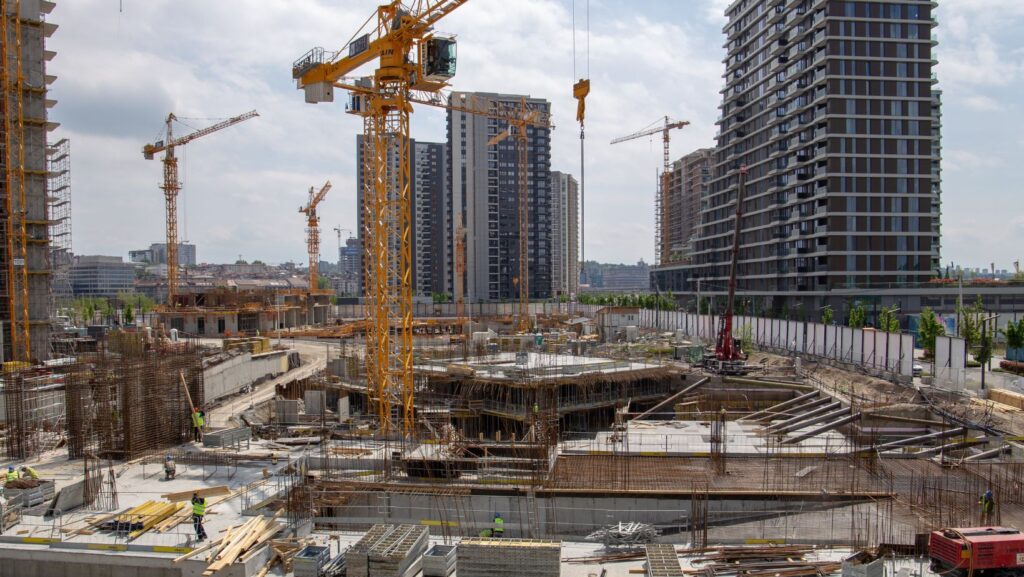
How to Improve Construction Site Efficiency with the Right Equipment
Efficiency at a construction site plays a vital role in meeting deadlines, staying within budget, and ensuring the whole project runs smoothly and effectively. The major contributor to on-site efficiency is definitely the equipment used at a site. Choosing the right equipment for the construction job surely makes a big difference in how effectively and efficiently the work is carried out. From saving labor costs to ensuring the job is done in safety and accuracy, proper tools can make the work easy and productive altogether.
Assessing the Needs of the Project
The best efficiency for any construction site can be developed when understanding the needs that a particular project will entail. Not all tasks require the same type of equipment, and using machinery for the wrong task could result in delays, increased costs, and even risk factors. For a large-area excavation project, using a small backhoe instead of a big excavator will considerably delay progress. By evaluating the project scope, timeline, and site conditions for each phase of work, an appropriate piece of equipment can be found that best fits the project to develop it with maximum efficiency.
Selecting Versatile Equipment
Efficiency can be improved in several ways, but probably the most common for contractors is by investing in or renting multi-tasking equipment. A machine that can accomplish numerous tasks in one operating mode saves a tremendous amount of time that would be taken up by many different types of equipment.

For example, a skid steer loader can utilize various attachment types to perform a range of activities, such as digging, lifting, and grading. The versatility means fewer machines are required on-site, which minimizes downtime while promoting smooth workflow. As a matter of fact, versatile equipment reduces overall costs related to transportation and storage, which further contributes to project efficiency.
Optimizing Equipment for Site Conditions
There can be a wide range of challenges on a construction site, from the most unenduring terrain to very confined spaces. In order to maximize efficiency, it is important that the equipment used is suited to the conditions of the site. In fact, operating machinery meant to suit all kinds of terrains on locations with bad or difficult terrains eliminates delay causes that relate to the incidence of stuck or non-operable machines. For the case of job sites within urban areas or places highly populated where space is limited, compact equipment to easily maneuver through such traffic snarls reduces work significantly. A construction equipment supplier offers expert advice on which such machines meet your peculiar job site needs.
Investing in Advanced Technology
The construction business has grown rapidly in terms of technology, which can greatly enhance the efficiency of the site. Equipment that is embedded with GPS systems, sensors, and automation features enables the operator to perform the task more effectively and fast. Similarly, the GPS-guided equipment enables the operators to grade the land accurately and does not require manual measurement, thus saving a lot of time. Likewise, the use of automated machinery reduces the risk of human error, which helps maintain quality consistency and avoids much rework. Telematics systems also enable site managers to obtain real-time insight into equipment performance and condition to perform maintenance in a predictive manner, avoiding unexpected downtime.
Regular Equipment Maintenance and Inspections
Regardless of how well your equipment is matched to the task at hand, without regular maintenance and inspections, it will not continue performing at an optimum level. The key to efficiency on a construction site is to keep all machinery in the best working condition possible.

Downtime related to breakdowns and repairs is very expensive. Poorly serviced machinery is unable to give full performance and thus results in delays in completing the work. All such problems can be completely avoided by mere adherence to a routine maintenance schedule and pre-operation checks of the machinery. These measures would also ensure that the equipment is working at optimum efficiency. This maintenance practice would also increase the life of such machinery, and thus, the overall costs of the project are decreased.
Training Operators for Maximum Efficiency
Even with the best equipment, efficiency goes down when that operator is not well trained. For any operations to run effectively and efficiently on the site, your crew should be able to use the machinery correctly and safely. Well-trained operators can finish tasks faster and make fewer mistakes, creating rework, causing delays in your projects. The experience also enables operators to treat the equipment more adequately under poor conditions on the site, boosting overall efficiency even further. This will pay off in the long term, both in terms of better performance and fewer accidents, as one invests in training and certification for the team.
Efficiency on a construction site can be improved by proper selection of suitable equipment for a particular operation. Construction managers can optimize workflow and reduce downtime by understanding project requirements, selecting versatile machinery appropriate for the site, and leveraging technological advancements in this regard. Equally important to good operator training is a regular maintenance schedule. With the right strategies and tools in place, on-time completion of construction projects within budget and to the highest possible quality standard is achievable.





